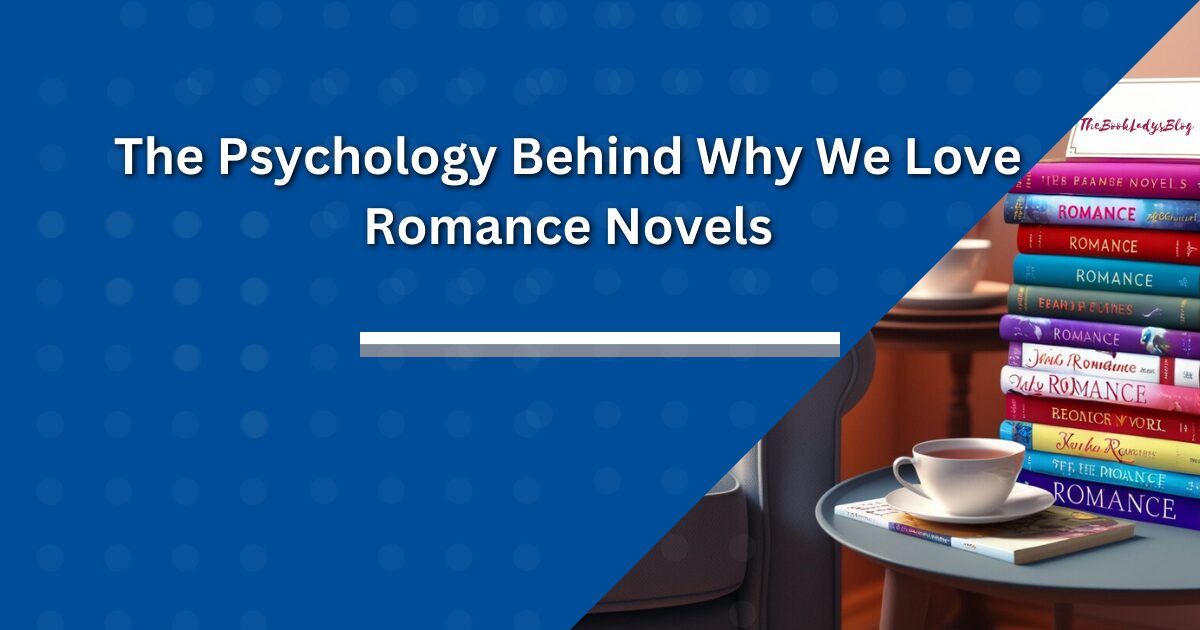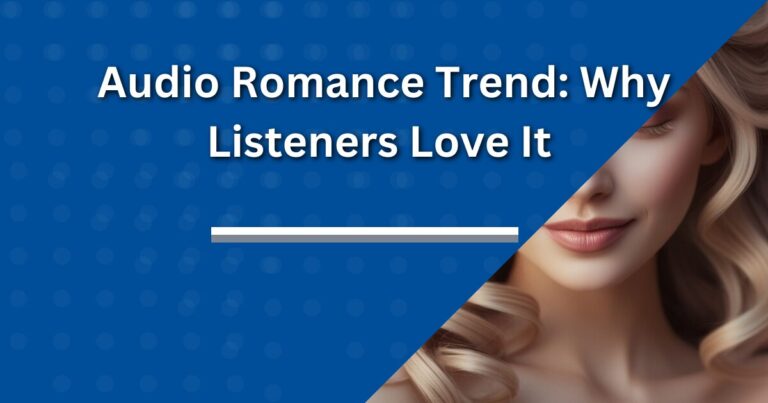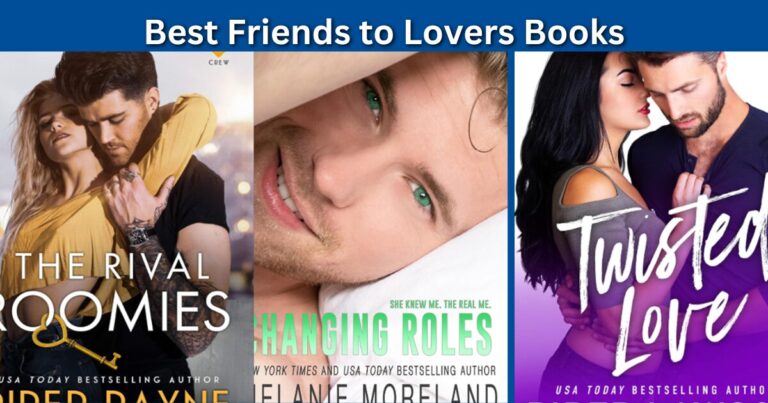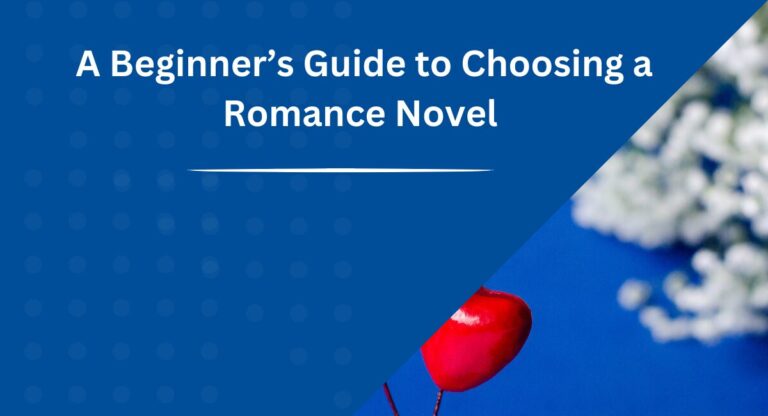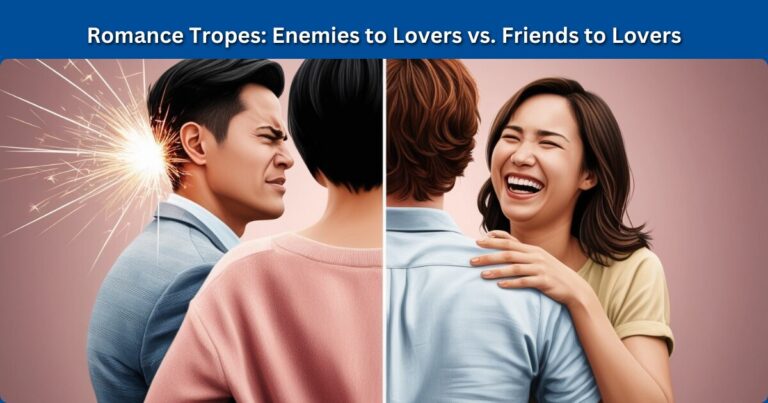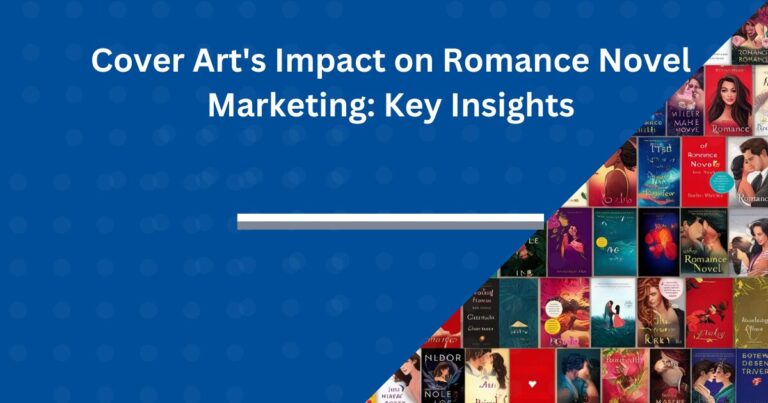Why We Love Romance Novels: The Psychology Explained
Who doesn't adore a nice love story?
Romantic novels have been a hit with readers for years, but have you ever wondered why they are so addictive?
Come on book lovers!
We're going to take a thrilling journey and look through the human brain to find out what makes us fascinated with these page-turners.
This type of writing has been characterized by continuous growth in the romance genre. This means that romance books have always accounted for a big chunk of fiction sales, showing how much they appeal to various categories of readers.
It's true – almost 25% of fiction sold deals with love, desire, and happily ever after.
However, what is the science behind it all?
Let's now get immersed in it.
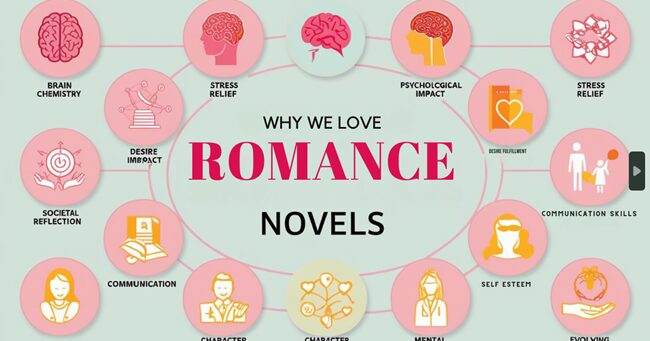
10 Reasons Why People Enjoy Reading Romance Novels
- Neurochemical Composition: Stimulates the secretion of hormones such as oxytocin, and endorphins.
- Stress Management: Allows an individual to have a rest from mental pressures.
- Psychological Impact: Enhances empathy and emotional intelligence.
- Desire Fulfillment: Provides a safe environment for exploring personal fantasies.
- Societal Reflection: It mirrors and challenges society's rules.
- Communication Skills: Serves as a reference point on how to solve conflicts among couples.
- Self Esteem: Advocates for body positivism and acceptance towards oneself.
- Character Attachment: Engenders companionship through fictional characters.
- Mental Wellness: Can act as a form of bibliotherapy.
- Evolving Genre: Becoming more diverse and empowering.
Keep in mind that romance novels are not just pastimes; they can be beneficial to the brain and/or heart.
The Neuroscience of the Reading of Romance
OK, then, now for some nerd stuff – in the best way!
Remember that Eureka moment I mentioned?
Well, it was due to serious brain chemistry. Let's dig deeper into this.
To kick things off, we have oxytocin aka “the Love Hormone“. Personally, I've always seen this as being strictly about physical contact.
However, simply reading about love can cause a release of oxytocin. It is like our minds are experiencing the scenes when we get engrossed in a steamy romance scene or a tender moment between characters.
Can you believe this?
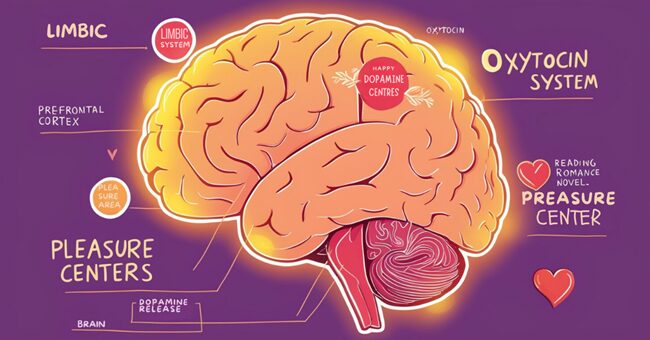
But hold on!
There is more going on here.
Let's talk dopamine– your brain's favorite feel-good chemical. Every time our fictional couple overcomes an obstacle or shares a passionate kiss, boom – dopamine surge.
It acts like a little reward system that keeps us turning pages and wanting more. That's why I couldn't stop reading my first novel.
Something else really caught my eye though. Reading romantic novels can actually help reduce stress and promote relaxation according to research conducted by various scholars and experts.
I've always known that reading a book can help me relax, but I never knew it was based on scientific grounds. It's like having a holiday for your mind; putting your own worries aside and immersing yourself in the world of others.
But you know what?
Scans of the brain. Indeed, there are experiments whereby scientists examined what happens to us when we read about love. It's quite wonderful.
The same areas that become active when we are in love or gazing at images of our beloved ones?
These areas get activated in us when we read romance too. It is almost as if our brains cannot really tell the difference between reading about love and experiencing it ourselves.
I remember sitting in a café, browsing through these studies and just being amazed. This explained why I felt good after reading a romance book. It was not an act of escaping; my mind indeed received love and happiness exercises.
So when someone stares at you because of that romantic novel that they caught you reading, you can give them some science. Your brain is getting bathed in all sorts of beneficial chemicals.
Is there anything better than this?
It is more or less like having medication done for your wellness.
Emotional Escapism & Wish Fulfillment
Now let's talk about something all of us have done – getting lost in a good book.
Or what?
Sometimes we need it, as real life gets too…real sometimes.
My breakup was a very difficult one that I will always remember. My heart felt like a blender and the last thing on my mind was love. But somehow, almost unconsciously, I reached for a romantic novel.
And guess what?
For those few hours lost in that story, my own pain took the back seat. It seemed to be a healing balm for my bruised soul.
This is escapism at its best. It's not about escaping from our problems but allowing ourselves some time out to recharge.
Romance books provide us with such pocket universes where all is fair in love, and sometimes it is exactly what we need to build up enough stamina to face our own challenges head-on.
Not only does it serve as an escape from reality but also as a source of satisfaction for our deepest wishes and wants.
Let's be honest, how many of us have ever dreamed about that perfect meet-cute or whirlwind romance?
Romance books let us live through these fantasies in the lives of others. It is like emotional wish fulfillment and there is absolutely nothing wrong with that.
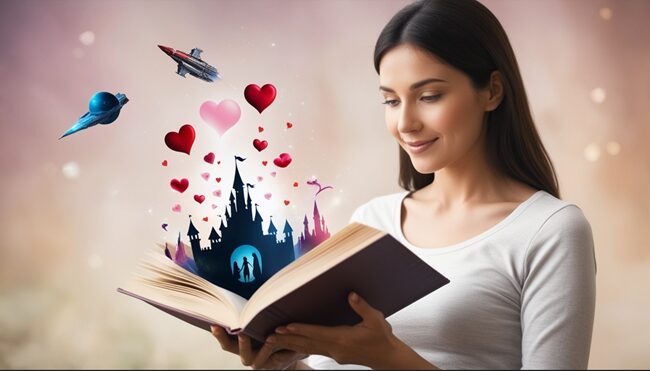
I used to feel kind of bad about this as though I was having unrealistic expectations for my love life. But then, I realized that it has nothing to do with expecting real life to resemble fiction.
What if we were to look at numerous aspects of loving someone in a diverse manner and maybe, most importantly, even discover what we truly need within our relationships?
But let us think about “and they lived happily ever after.”
When the world tends to be quite gloomy and unsure at times, it feels good knowing that no matter the challenges faced by these characters, love will eventually emerge triumphant. This is like a little bit of hope straight into your heart.
The main characters finally getting together was so important to me that I would stay up too late, going “just one more chapter” till it happened.
The happiness and sense of fulfillment that followed after their action are without any monetary worth. My brain seemed to be throwing a celebration for my emotional well-being and it even had confetti at the party.
So, in case you ever get an itch to read a romance novel, by all means, do so. This is not just fun but lifting your emotional well-being a little bit. With me, that's always a good thing.
Cultural and Social Influences on the Popularity of Romance Novels
Alrighty then, let us take a step back and look at the larger picture. The Romantic novels did not simply develop from nothing- they have a rich history as exciting as any plot twist in your favorite book.
I once stumbled upon an old romance novel while rummaging through a second-hand bookstore. It went back to the 1970s and let me tell you, it was… different.
He was called “masterful” and his opposite – ‘the heroine'- was “submissive,” which made me cringe rather than swoon. But it got me thinking about how much the genre has evolved over time.
Romance novels are as old as centuries can go, surprisingly enough. From Jane Austen's witty romances to the bodice rippers of the 70s and 80s, this has been an evolving genre through which societal norms have been reflected upon or dismantled sometimes.
And how it has defied conventions in style! The notions of changing gender roles have often been addressed in romantic literature.
I mean, where else can women openly read about female pleasure and empowerment at a time when these were considered unspeakable?
It's quite revolutionary if you think about it.
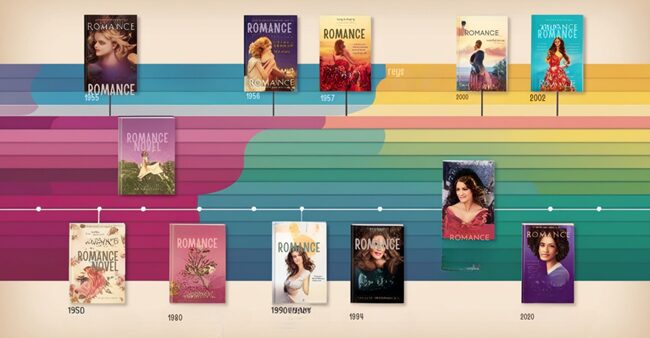
Speaking of being revolutionary, what impact has the #MeToo movement and modern feminism had on romance novels?
Those days when there was an “alpha male” who could not accept a no are gone. Consent, respect, and equality are the keywords of today's heroes in romances.
As for heroines?
They're saving themselves these days, thank you very much.
I remember having a heated discussion with a friend who dismissed romance novels as “anti-feminist.” I told her to read some recent romances, and she couldn't believe how empowering and diverse they were.
That was like a lightbulb moment for both of us – all those years of the genre growing up before our eyes.
Diversity is where the excitement lies.
Finally, the romance genre is starting to show humanity's diverse feelings and experiences of love. We are witnessing a rise in LGBTQ+ relationships, interracial couples, disabled characters, and stories from different cultural perspectives.
It's like this kind of fiction is announcing to the world that love knows no boundaries and all groups need their reflections on love through storylines.
I will never forget when a friend of mine bought her first-ever romance book with a main character who was plus-sized.
For someone who has always had issues with her body image, it felt so empowering to see herself as desired and loved by someone else for once; it dawned on me the importance of representation.
Romance novels have been evolving in an intriguing way to reflect transformations in society. They demonstrate our ethics, apprehensions, dreams, and how we are beginning to grasp different ways of love and relationships.
Therefore, whenever someone downplays romance novels as “just fluff,” you can educate them about the silent revolutions that these books have been causing for decades.
Psychological Benefits of Reading Romance
So, now for the meat – reading romance novels can be a prescription for a healthy mind.
Funny, isn't it?
It is like discovering that chocolate is a vegetable (unfortunately no, I looked).
Let's begin with empathy as it is the most crucial aspect of any novel.
Have you ever found yourself rooting for characters and feeling their sorrows and joy?
That's what happens when exercising your empathy muscle. Empathy increases emotional intelligence and enables a better understanding of other people's feelings.
Isn't that amazing?
I recall a book about a romance where one of the main characters was anxious. The way the writer described the character's internal turmoil was so accurate that it helped me gain a deeper understanding of my anxious friend.
It completely changed how I saw things and made me become more supportive of her. This is what fiction can do.
But they are not only resources for learning about others – they also teach us important relationship skills we need in life.
In the end, what we get from reading these books is an education in communication, compromise, and conflict management all rolled together into one compact lesson package.
However, I am not suggesting you cling to every word of this kind as far as relationships are concerned (no thank you), but there is likely something to be gained from examining how these individuals handle their relations.
The other day, I was trying out a communication technique I had learned from a romance novel during an argument with my partner.
Do you know what happened?
It really worked! We were able to resolve the issue much more smoothly than we usually do. It was a revelation – that these novels could actually offer me tools that I can use in reality.
Now, let's discuss the therapeutic potential of reading romantic literature. To some people, myself included, these books are used as literature therapy.
They provide consolation, reduce anxiety and even act as remedies for anxiety and depression-related symptoms.
Like when you go on vacation just in your mind and forget about all your personal problems, being engrossed in another world where love is always victorious.
I'll never forget the time I was going through a really tough period at work. I was stressed out, anxious, and had insomnia problems. However, every evening before going to sleep, I would read one or two chapters from a romance book.
This became a calming practice helping me relax and get away from the day's strains. It wasn't something that gave me the ultimate solution but it did help me to cope during a difficult time in my life.
Self-esteem and body image also deserve a mention. There is often the celebration of diverse bodies in romance novels, especially in contemporary ones, which makes readers feel attractive and entitled to love; it feels like an empowering story packaged as a little ego boost.
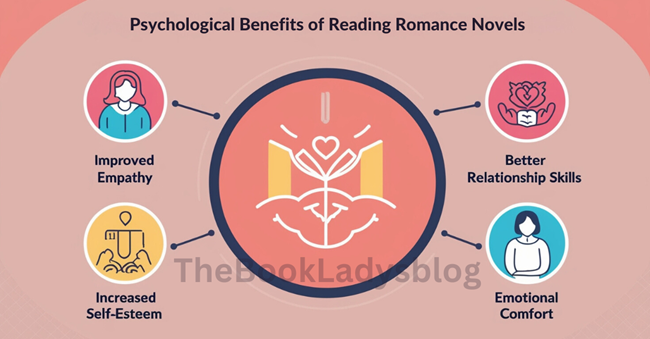
I once read a romantic novel with an insecure character that mirrored my own insecurities. The way she learned to accept herself and be loved by others was profound. It helped me to begin viewing myself positively.
Thus, someone else who tries to make you feel guilty about your love for romantic novels can be told that it is part of your “self-care“. Because in a lot of ways it truly is.
The Psychology of Character Attachment
Okay, let's get into something that has fascinated me for years now – why we become so attached to non-real figures.
I mean how many people have stayed up way past their bedtimes because they had to know what happened next with a character they liked?
Raise your hand if you have done so!
This phenomenon is called a parasocial relationship and is quite common among romance novel characters. We spend hours inside these characters' heads, learning their deepest thoughts and emotions. It's no shocker, then, that we start feeling like we know them.
I will never forget crying when I finished the last book in a really good romance series. It was as if I had said goodbye to old friends. My roommate thought I was crazy but maybe some of you can relate.
Now, let us consider character archetypes. You know, the troubled bad boy, the girl next door, and the charming rogue. These archetypes tap into different emotional needs deep within our psyches.
It's like comfort food for our brains.
I used to think I was so original for always falling for the snarky, sarcastic love interest. Then I realized it was a whole archetype, and I had to laugh at myself.
But you know what?
I understood why that type of character attracted me, and it told me something about my life and beliefs towards men.
Another interesting aspect of understanding romance novels is how we relate to the protagonist.
When we recognize ourselves as them or desire to be like these characters in storylines. This gives us a greater emotional connection with the book. We're just being them, living through their victories, defeats, triumphs, and setbacks.
One time while reading a romance novel, the main character suffered from social anxiety which happened to me too. It was really inspiring watching her overcome all her fears and fall in love. This made me feel like, maybe, I could do the same thing one day if only I tried enough.
And please, don't let me get started about the impact that serializing romances and recurring characters have on the mind. Going back to a well-known world and its actors is something very soothing. It's like meeting old buddies again.
Don't you dare judge me, I once binged an entire romance series in a week. At the end of it all, I felt like I knew each and every one of them personally.
In moments when something difficult would come up, I often wondered what they would do if they were involved in such situations. It was similar to consulting with numerous invisible companions.
Understanding the psychology behind our attachment to these characters can actually teach us a lot about ourselves and our own relationships. This identifies what we want in others, who we strive to be ourselves, and even helps us understand some of our emotions or experiences better.
So, don't beat yourself up about fictional characters if you are too deeply attached to them next time. It is a normal and even advantageous part of reading. Just don't christen your pets after them. (Jokes! Or am I?).
Final Thoughts
What an enthralling journey through the psychology of romance novels!
We have delved into the neurochemical mix that causes our hearts to race, discovered the emotional sanctuary that these books provide, and learned how they might make us better partners in real life.
Romance novels are not just guilty pleasures; they are complex interactions between human emotions, culture, and psychology itself.
The next time someone gives you a side-eye for indulging in a steamy read, you can confidently explain that you're not just entertaining yourself – you're engaging in a sophisticated psychological experience.
Ready for your next romance read with new eyes?
Enjoy reading and may your next fictional love story be as thought-provoking as entertaining.
FAQs
Can romance novels ruin my relationships?
No way!
Romance novels can enhance your relationship skills by showing examples of good communication and conflict resolution.
Just keep in mind that real relationships are not like those in books. You can use this to have a discussion with your partner on issues of relationship goals.
Why am I so emotionally attached to make-believe characters?
It's okay. Our brains establish connections between these characters as if they were real friends. This, in turn, enhances empathy and emotional intelligence within us.
Cherish the bond, but remember you need to build up real relationships too. It is about equilibrium.
Is it possible for romance novels to reduce stress?
Of course!
Romance novels can serve as good stress relievers. They give your brain a break from daily concerns and help produce feel-good hormones such as oxytocin.
For relaxation, consider reading them half an hour before bedtime. But please, do not read all night long just to finish one chapter!
Do romance novels promote anti-feminism?
They no longer do.
Modern romantic books often portray women who are independent and strong together with men who respect them – there are no more chauvinistic behaviors.
Many touch on the themes of equality and consent.
Check out some new releases in order to understand how much the genre has changed over time as diverse romance authors are shattering genre stereotypes. You might find that this could actually be empowering.
How can I forget the guilt associated with reading romance books?
Bear in mind, there is no need to feel guilty!
Romance novels have many advantages such as reduction of stress or increasing empathy. They are a useful form of entertainment and even self-therapy.
Accept your reading choices and emphasize the effect the books have on you. When it comes to books, the most important thing is happy reading, that is good reading.
